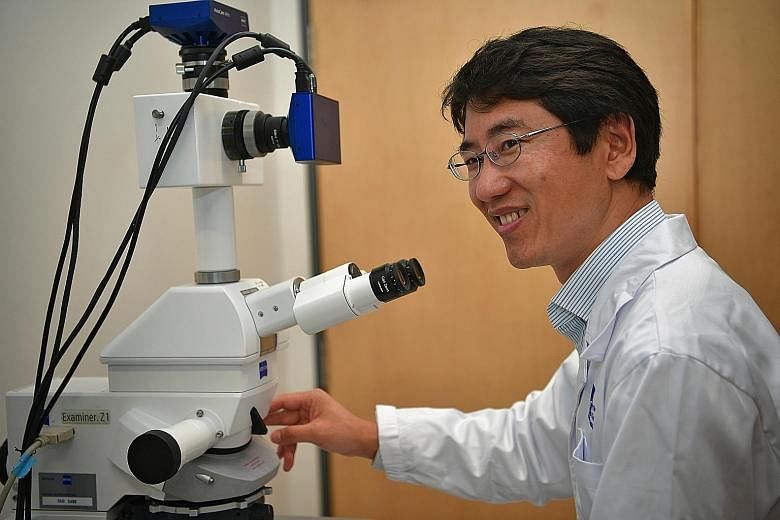A type of cell within the brain plays a key role in controlling appetite, and, when manipulated, induces or suppresses feeding behaviour, scientists have found.
The discovery offers a new target which researchers could potentially exploit to create drugs that tackle obesity, for instance.
In the process, Dr Han Weiping and his team from the Singapore Bioimaging Consortium, together with scientists from the Massachusetts Institute of Technology (MIT), debunked the traditional notion that the cells - glial cells - only supported the function of other brain cells.
"Traditionally, the idea is that they maintain the health of neurons by providing nutrients and signalling molecules," Dr Han, the principal investigator of the study, said.
"Now we also show they are involved in regulating feeding."
The team's study focused on astrocytes, a type of glial cell.
They found that when astrocytes were activated in mice, the animals ate about three times more.
Dr Han said in the past it was thought that neurons regulated feeding. But the team found that it is the astrocytes that regulate the neurons. "So when you activate them, you get increased activity in certain neurons which induce feeding behaviour," he said.
He added that there has been little success in developing a drug that influences a person's appetite, and that the new finding sheds light on a new area that researchers could look into.
But he said: "Treating appetite is not easy as the natural instinct of humans and animals is to eat, and suppressing appetite and feeding behaviour are counter-evolutionary".
A paper on the finding was published in scientific journal eLife.
Professor Zhang Su-Chun, director of the neuroscience and behavioural disorders programme at Duke-NUS Medical School, said it has been increasingly recognised in recent years that glial cells actively participate in neural network activities normally assigned to neurons.
"From the academic standpoint, this finding explains how astrocytes regulate neuronal network activities in a rather specific manner in mediating feeding," said Prof Zhang.
"This study also has potential implications in developing therapeutics for feeding-related disorders such as obesity, at least pointing to astrocytes as a possible target of therapeutic intervention."

